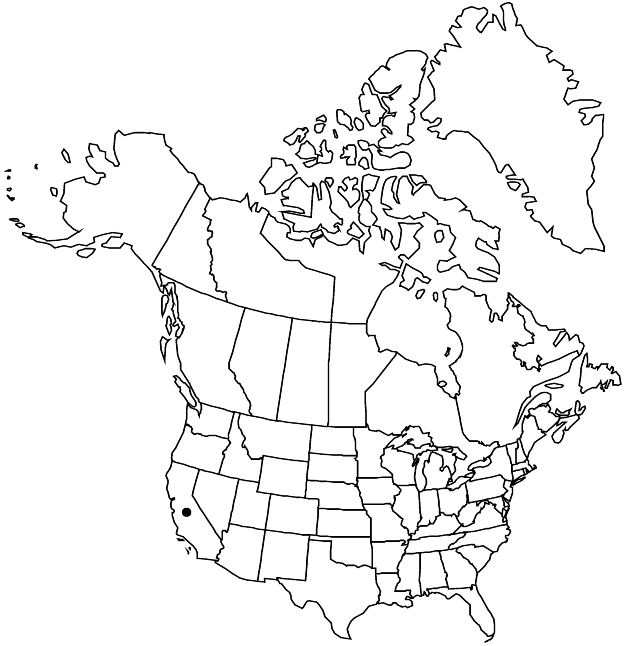Sidalcea covillei
Cybele Columb. 1: 35. 1914.
Herbs, perennial, 0.2–0.6 m, often glaucous, with fleshy, simple to clustered roots, without caudex or rhizomes. Stems several, clustered, erect, solid, often glaucous proximally, base sparsely, finely to coarsely stellate-hairy or hispid, hairs smaller distally. Leaves 2–5 per stem, mostly basal; stipules linear-lanceolate, 3–6 × 1 mm; petiole (4–)5–10 cm, reduced on cauline leaves, proximal 1–4 times as long as blade, distal 1/2 times to as long as blade; blade fleshy, glaucous, rather densely stellate-hairy, proximalmost usually shallowly to deeply, ternately, palmately 5–7-lobed, 1.5–3 × 1.5–4 cm, lobes obovate, margins crenate-dentate, distal deeply 3–7-lobed, lobes linear, distalmost 2–4 cm wide. Inflorescences erect, open, calyces not conspicuously overlapping except sometimes in bud, branched or unbranched, nearly scapose, often 20+-flowered, slender, elongate, 1-sided or not, 6–30 cm; bracts inconspicuous, linear, 2-fid, 2–4 mm, shorter than calyx and pedicels. Pedicels 2–8(–10) mm; involucellar bractlets absent. Flowers bisexual; calyx 5–8 mm, uniformly, densely stellate-puberulent or few with longer rays; petals pale pink-lavender, veins paler, 10–15 mm; staminal column 4–5 mm, hairy; anthers white; stigmas 5 or 6. Schizocarps 5 mm diam.; mericarps 5 or 6, 2.5 mm, sparsely glandular-puberulent, roughened, back reticulate-veined, sides strongly so, not pitted, mucro 0.1–0.3 mm. Seeds 1 mm. 2n = 20.
Phenology: Flowering (Apr–)May–Jun.
Habitat: Alkaline flats, springs, meadows
Elevation: 1100–1400 m
Discussion
Sidalcea covillei is one of two species of Sidalcea (along with S. neomexicana) with fleshy roots and adapted to alkaline conditions on flats. Its range (Owens Valley in Inyo County) and specialized habitat have made it vulnerable to any lowering of the water table and to grazing; it is listed as endangered in California. Most individuals of it were destroyed by construction of the Haiwee Reservoir. Once thought to have been extirpated, it was subsequently rediscovered.
Selected References
None.
